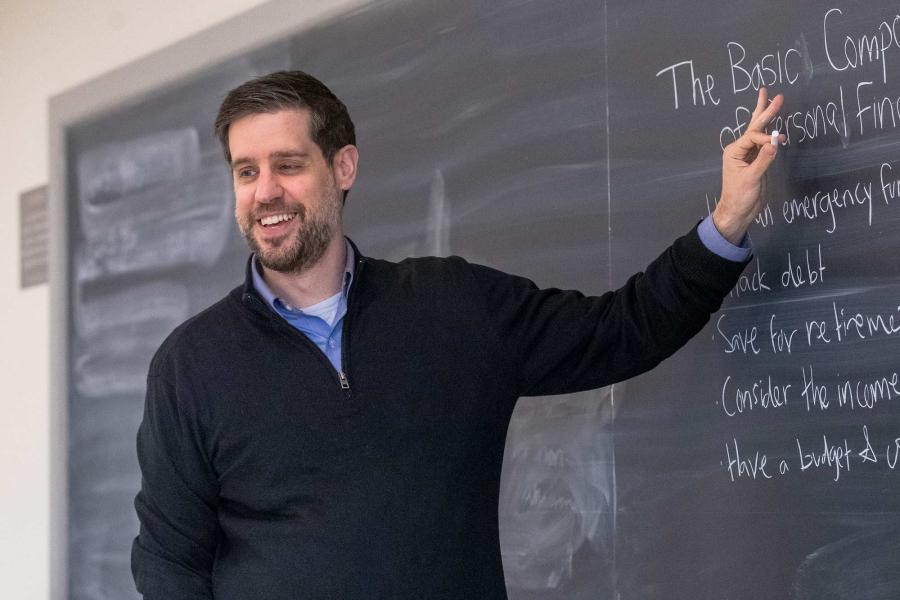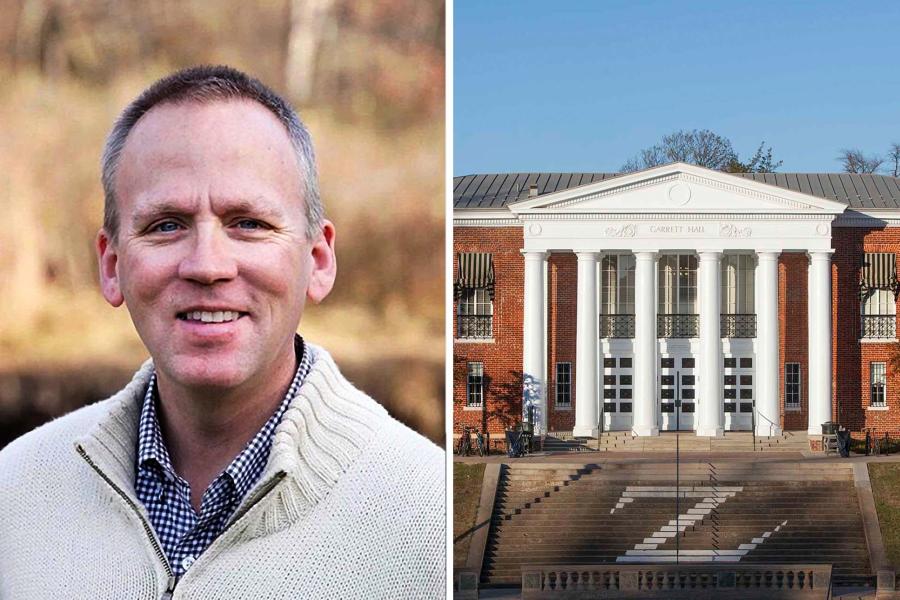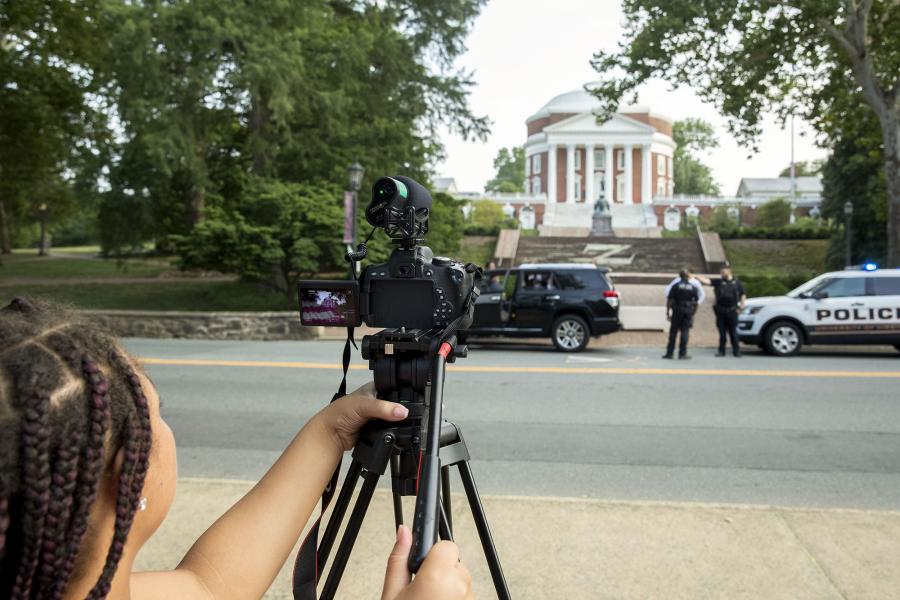As a junior at Charlottesville High School, Ev Wellmon has always been an activist. She’s president of her school’s Young Feminists, and she’s acutely aware of how public policies affect her and those around her.
But she didn’t know public policy and advocacy could be a field of study until she participated in a weeklong program at the University of Virginia this summer. A speaker who works in education policy at the Frank Batten School of Leadership and Public Policy inspired her.
“I didn’t really know things like that existed,” she said. “And I was like, ‘Oh, that’s really cool. Maybe education policy would be awesome and achievable for me.’”
Wellmon is one of nearly 50 local high school students using what they learned over the summer to be better leaders and advocates in their classrooms this fall. The weeklong Policy Leadership Advocacy by Youth, or PLAY, program in July introduced students from Charlottesville and surrounding areas to the world of public policy and leadership.
The program took place in partnership with nonprofit iThrive Games, which was founded by Dorothy Batten, a 1990 graduate of the Darden School of Business and the daughter of Frank Batten, who founded the Batten School. The Jefferson Trust also contributed to the program, making PLAY free for participants.
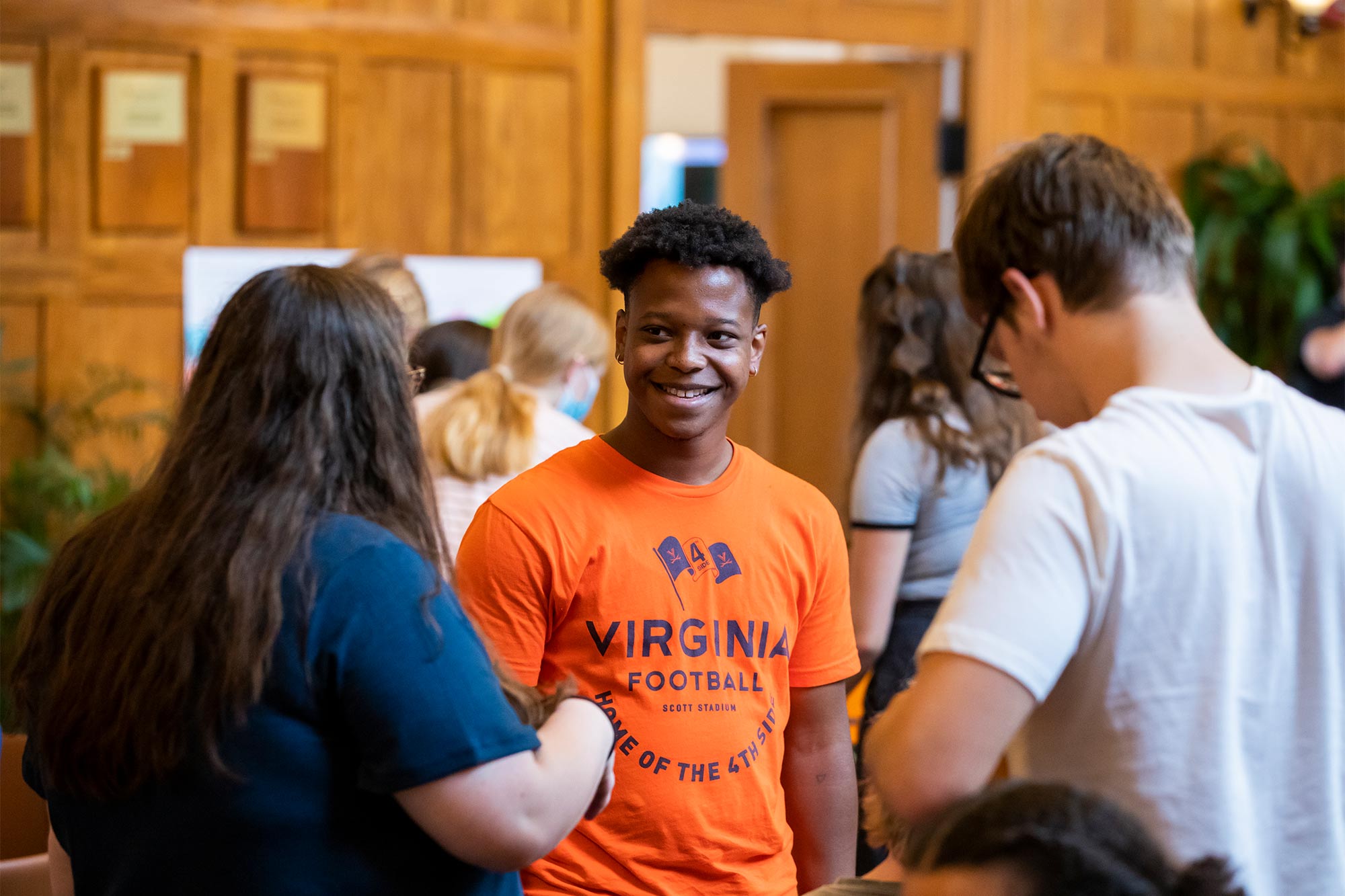
Doors Opened
Through conversations about issues affecting youth now, PLAY’s organizers set out to provide participants with leadership skills, introduce them to public policy and, eventually, build a pipeline of future policy and leadership studies students.
“Even for adults, when you think about public policy, it’s such a broad topic,” Shawn Anderson, Batten’s assistant director of student services, said. “We really wanted to look at what issues they were facing in their lives as high school students and, especially over the last 2½ years of COVID, and what are some policy issues that they identified as being tough or challenging for them in their high school careers and social lives.”
Students toured Grounds for a glimpse of college life and took part in sessions about public speaking and developing professional networks.
“There were just a whole bunch of open doors to this program that now I get to explore and maybe figure out what path I want to take and what I need to do next,” said Mushtaq Faiz, a 16-year-old junior at William Monroe High School in Greene County.
A large chunk of the week used game design, with guidance from iThrive, to foster conversations about policy issues that touch today’s teens, including mental health, gun access, women’s issues and income inequality.
Play On
Letting teens dig into big questions in the space of a game creates opportunities for them to reflect on their own knowledge and experience, said Susan Rivers, iThrive’s executive director and chief scientist. “The power of game design is it invites you to be super concrete about your understanding of the world,” she said.
Teens are in a unique place in their own development to come up with out-of-the-box ideas, Rivers said. While adults have learned how systems operate and usually work within those confines to solve problems, the teen brain is tuned to explore every possibility as they figure out their place in the world, away from parents.
“Their natural inclination is to take risks,” Rivers said. “And, for me and for the work that we do, they make some of the ideal design partners for coming up with solutions to address the world’s problems.”
College Ready
Wellmon’s group focused on surging mental health problems in teens, and their discussions included conversations about solutions such as more school counselors and training for teachers to help students.
They wanted their game to leave players feeling exactly how teens feel as they grapple with a lack of mental health support – frustrated and demoralized, Wellmon said. To play the game, players picked up cards that had them move forward or backward based on positive or negative experiences. Deleting social media moved them ahead, for example, but a fight with parents set them back.
“It was truly miserable to play,” Wellmon said. “You couldn’t tell anyone what happened to you. You could draw a card and go back five spaces, and you weren’t allowed to talk to anyone because we want to show how isolating it can be, feeling like you have no one to talk to.”
Wellmon called the entire experience “enriching.” Faiz said it was “thought-provoking.” He especially enjoyed interacting with current Batten students, who served as counselors. “I wanted to just go straight ahead to college,” he said.
Anderson said that if funding allows, organizers would love to hold PLAY again. “I can’t emphasize enough how well these high school students presented themselves, their professionalism and their ability to be vulnerable and really put themselves out there. They did this all while practicing exactly what the Batten School is,” he said, “and that’s public policy and leadership.”
Media Contact
Communications Director UVA Environmental Institute
alb3v@virginia.edu 434-924-7064
Article Information
July 15, 2025

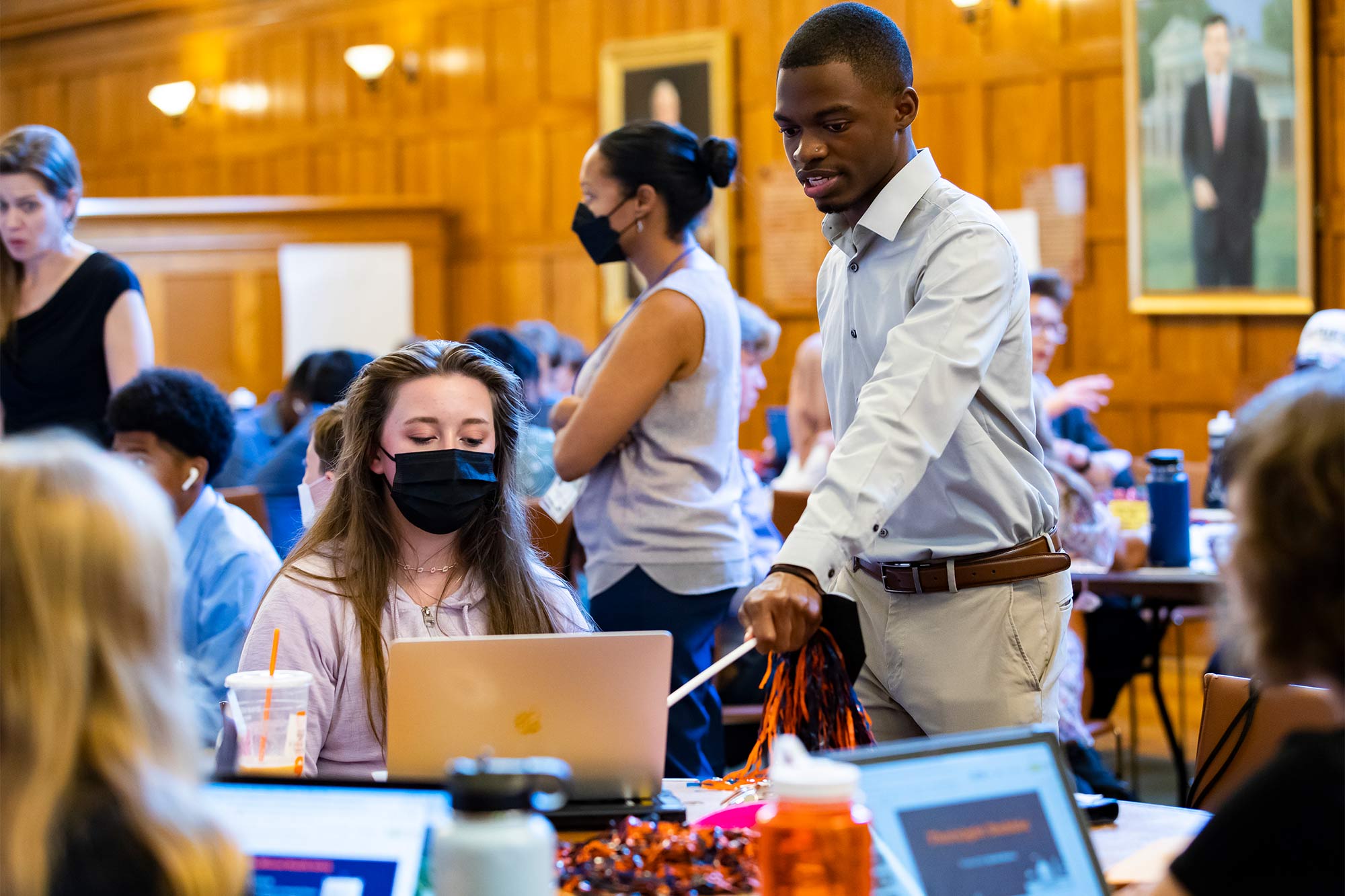

.jpg)
